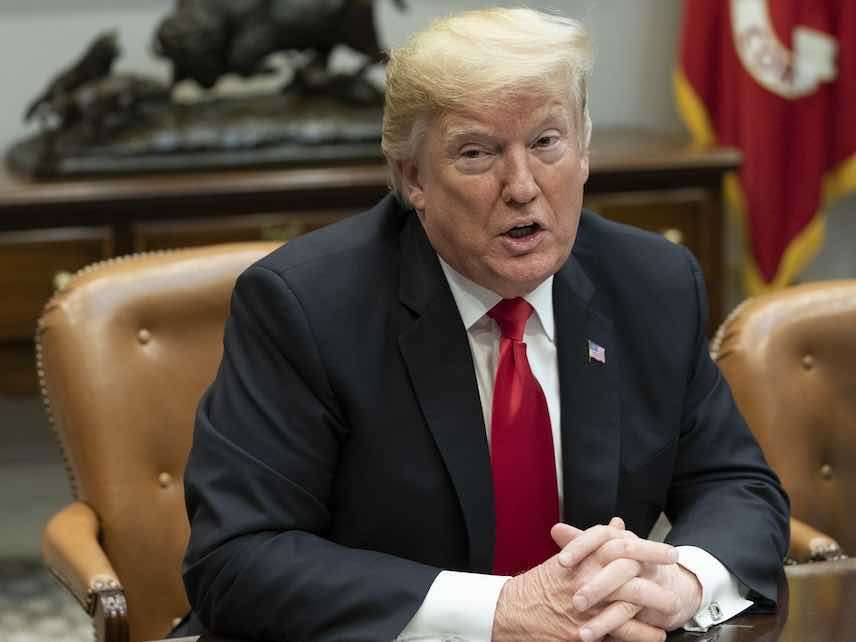If You Support Democracy and the Rule of Law, You Should Applaud Trump Getting the Hell Out of Syria
Rep. Justin Amash: "U.S. forces should not be engaged in Syria...without legitimate military justification AND proper congressional authorization."

On Wednesday, President Donald Trump announced a full withdrawal of U.S. troops from Syria, which would bring a sudden and welcome end to American involvement in this particular open-ended Middle Eastern conflict. Everyone who values the rule of law and democratic governance should cheer this decision.
My colleague Nick Gillespie rightly praised Trump for "bringing soldiers home from unconstitutional wars that have no clear connection to national security." Libertarian-leaning Rep. Justin Amash (R–Mich.) tweeted his support as well, writing, "U.S. forces should not be engaged in Syria—or any country—without legitimate military justification AND proper congressional authorization."
Not everyone is pleased. A predictable chorus of hawkish Republicans assailed Trump for making, in the words of perpetually bloodthirsty Sen. Lindsey Graham (R–S.C.), a "huge Obama-like mistake." (Barack Obama made many mistakes; one of the costliest, of course, was his disastrous intervention in Libya, which quickly became a haven for terrorists.) Sen. Marco Rubio (R–Fla.) lamented that pulling out too early would "haunt this administration and America for years to come." But as Iraq and Afghanistan have shown, America is also haunted by doubling and tripling and quadrupling down on open-ended commitments that cost innocent lives and billions of dollars while doing nothing to fundamentally improve the war-torn Middle East.
But it's not just hawkish Republicans who are uneasy about the drawdown; technocratic liberals, too, are wary. Thus this piece from Vox, "Trump is pulling all ground troops from Syria," which is sub-headlined: "That could be a boon to Iran, ISIS, and Russia." The article eventually gets around to conceding that "in a sense, Trump's withdrawal move—if it happens—is somewhat defensible," before immediately pivoting to "some experts, though, aren't as sure." That experts like war is unsurprising; the Washington, D.C. political establishment is relentlessly hawkish, and no doubt most of Trump's advisers are attempting to talk him out of the withdrawal.
Many of Trump's critics have been especially worried about the lasting damage he could inflict upon democracy and constitutional governance. These are legitimate fears—a president who tweets with some frequency about his desire to demolish cherished First Amendment norms is certainly a serious threat. But every now and then, the fact that Trump feels unconstrained by conventional politics is a boon for the rule of law. Norm-smashing is good if the norm in question—perpetual war—violates the Constitution, the rule of law, and democratic principle.
Open-ended military involvement in Syria is just such an example of a smash-worthy norm. U.S. troops arguably have justification to battle ISIS as part of the Bush-era war on terror, but Congress has not authorized regime change in Syria, or proxy battles with Iran, or any of the other objectives a permanent Syrian military presence is intended to achieve.
If such objectives are desirable, Congress can debate them, and vote to authorize military intervention. Importantly, the American people can hold their representatives accountable for these votes. To battle everyone, everywhere, without congressional authorization, in defiance of what the Constitution requires and what a war-weary public might desire, is foolhardy. It represents the worst of the bipartisan Bush-Obama elite foreign policy consensus. Trump should end it immediately, and all who fear capricious and unconstrained federal authority should—in this one specific case—applaud him.


Show Comments (128)